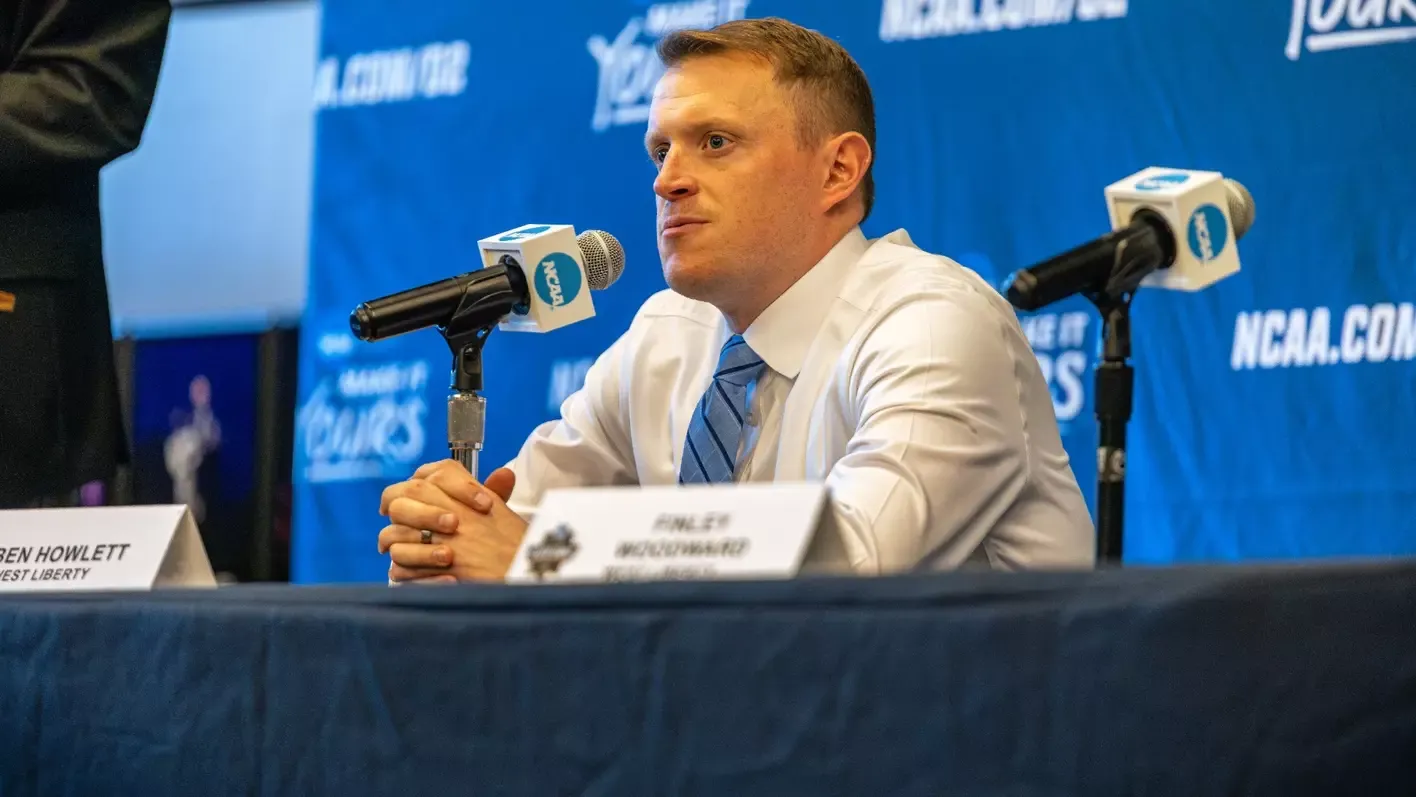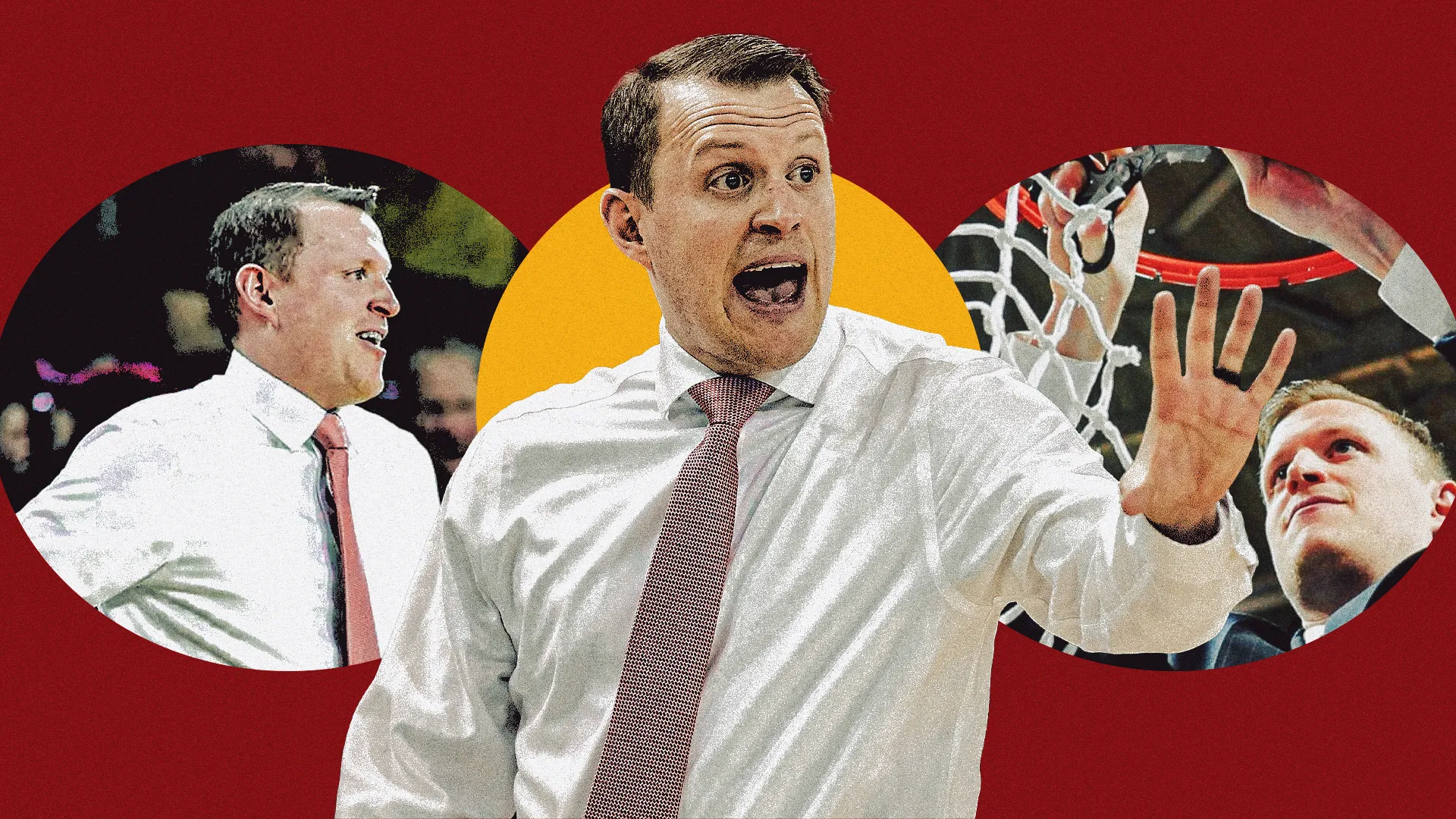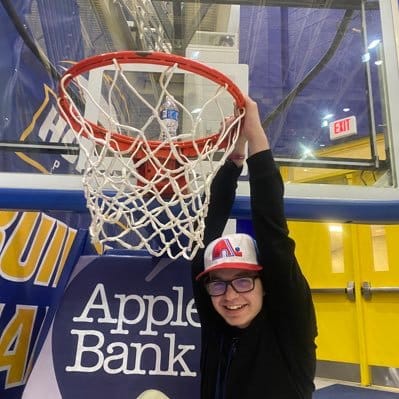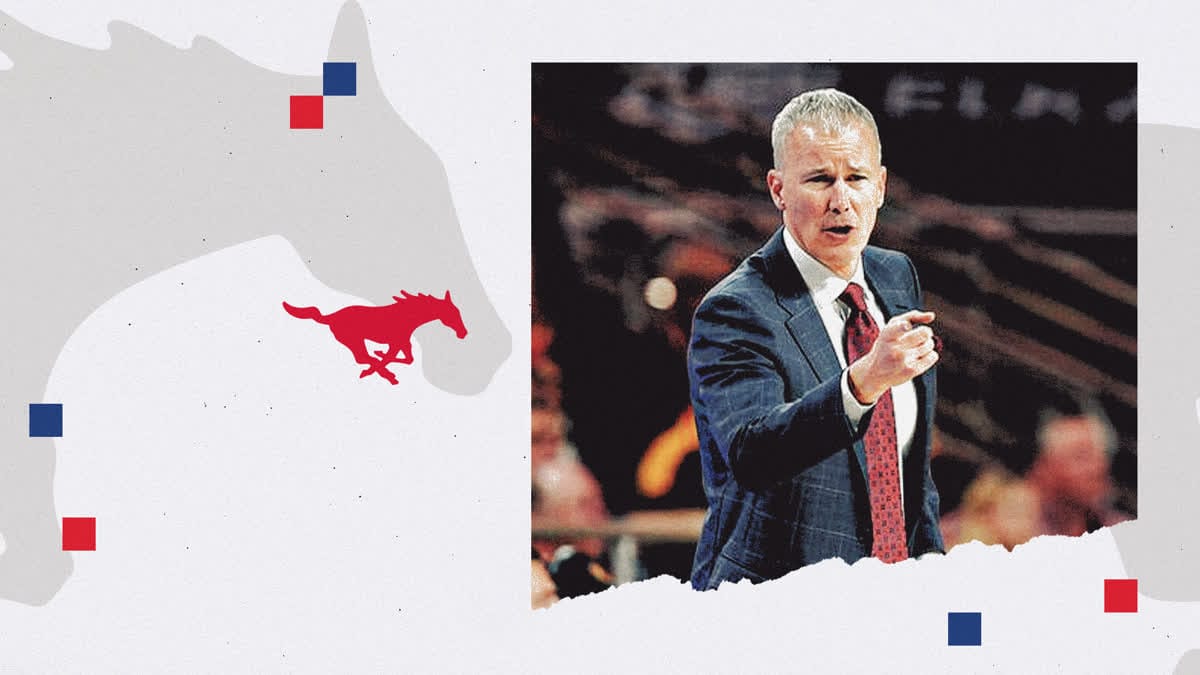Ben Howlett never wanted to be the one to replace Jim Crutchfield.
He thought that his mentor’s shoes were too big to fill. That it wouldn’t be possible to live up to the standard that he had set for the West Liberty University men’s basketball program.
“I wanted to go somewhere, and build a team, and make them better,” Howlett told Basket Under Review.
But when the administration pushed, and in Howlett’s words, “handed me the Corvette,” he couldn’t turn down the opportunity to stay at his alma mater and be the next head coach.
He was 30 years old.
Eight years and 217 wins later, Howlett left his own coaching legacy at West Liberty, and is now forging a new path. IU Indy hired him in May, making him the first coach off the Crutchfield tree to become a Division I head coach. It means that the Jaguars are now on the watch list of college basketball sickos across the country. Finally, for the first time we’ll see “the system”, as it’s known, at the Division I level.
It all started with a kid who was drawn to something different. Crutchfield’s system was unlike anything that anybody else was running in college basketball. He gave players freedom to make decisions, didn’t pigeonhole them into positions, and emphasized a high-pressure, fast-paced press that would take teams out of their element.
In his first season as head coach in 2004-05 – a tenure that probably shouldn’t have happened in the first place (read CJ Moore's story for The Athletic for more details on the Crutchfield part of the story) – Crutchfield led West Liberty to its best season in nearly 40 years, winning 21 games. Then, Howlett joined the program as an eager freshman from Marietta, Ohio.
“That was something that I wanted to be a part of,” Howlett said. “As a player, why wouldn’t you want to play in this type of system?”
He quickly found out that it wasn’t for the weak.
“I had no idea what I was doing when I first got there,” he said. “There’s just so many different things that doesn’t happen in ‘normal basketball,’ that happens within our system, that you have to do in order for it to be successful.”
He got the hang of it pretty quickly though, and he would graduate as part of the winningest senior class in West Liberty history, He then helped the class of 2010 eclipse that mark as a student assistant the next year.
The brain trust for the system isn’t a particularly large one, and it was even smaller back in 2010 when the system was just a kindergartener. So it made perfect sense for Crutchfield to hire former players as coaches to help his new players adjust to the way they play.
“He’d always tell us that pressing was his favorite thing to do,” former West Liberty guard Alek West told Basket Under Review. “That was what he lived for. You can see where his perspective comes from, because that same thing that he tries to instill in us, those are all attributes he has himself. No matter what he’s doing, he’s going to try to compete.”
It’s part of why Howlett was back at West Liberty after just one season at the now-defunct Ohio Valley University in 2011. Over the next six seasons, Howlett was the right hand to Crutchfield, and he gained more and more autonomy through the years.
“He really allowed me to be involved in all aspects of the program,” Howlett said. “He put a lot of faith in me in the recruiting process, allowed me to do all the administration, book trips. So I had my hand in pretty much everything in terms of running a program.”
Even though he didn’t see it, that’s why everybody around West Liberty saw him as the future of the program, and why it was a seamless transition, winning 26 games in his first year as head coach. The transition hadn’t been happening over one offseason, it happened over his entire time as part of the West Liberty program, an indoctrination into the style of basketball that is as much Howlett’s at this point as it is Crutchfield’s.
But he still has to teach his new players every year. And that’s where the brainwashing comes in.
Just a mention of the word “brainwash,” and Howlett’s former players will light up.
“Nobody understands what they sign up for,” former West Liberty guard Steve Cannady told Basket Under Review. “They know, but they don’t know what goes through it and how it works.”
Cannady played against West Liberty during his time with Wheeling University, and then made back-to-back NCAA Tournaments under head coach Gary Manchel at Mercyhurst. But when he came to West Liberty as a graduate transfer in 2022-23, he had to completely change the way he thought about basketball.
Howlett does that through a plethora of different sayings. In former player Chaz Hinds’ off-campus apartment, he and a few teammates bought a whiteboard. On that whiteboard, he wrote down saying after saying that he’d hear come out of Howlett’s mouth during practices.
By the end of the night, there was no room left on the whiteboard, and it stayed hanging on the wall like an art exhibit at a museum, untouched, until he moved out.
“Something we would always say is ‘you’re alright,’” Hinds told Basket Under Review. “When somebody is dog tired, or somebody would fall down, or maybe somebody needs to go throw up, he would say it as a joke, or our assistant coach would say it as a joke.”
But it wasn’t really a joke. Behind the laughs is a growing tolerance for the absurd from the players. Because that’s what it takes to play in the system, an endless motor that doesn’t stop revving even when an ordinary player or person would wave the white flag.
While outsiders charactertize the system by its measurable basketball traits, such as tempo and ball pressure, those who have grown up through it see it a different way.
“Just go out there and run fast,” Cannady described the system. “This is not normal, this is something that’s different than your high school basketball team, your middle school basketball team, your AAU team, this is totally different from all of that.”
Like many of his teammates, West also had to unlearn basic basketball habits that he’d trained on for many years.
West played his first two years for Ohio Dominican before transferring to West Liberty for his junior and senior years in 2022. He said it took him months to become comfortable in his new system, but he committed knowing that he’d have to adjust.
During his visit, he played three-on-three with some of the players on the team.
“We played for probably an hour straight,” West said. “And every time I went to go sit down, (Howlett) said ‘nope, you’re back in.’ Honestly, that was one of the hardest things I’ve ever had to do. Every opportunity I got I was putting my hands on my knees, trying to catch my breath, but again, it was just like the ball goes through the rim, you don’t check it up. Defense gets the ball out of the rim, takes it back to the three-point line, and you play.”
It must take serious conditioning training for players to have the tolerance to play in the system, right? How many miles through the hills of West Virginia are they running every single day?
But West says that most of the conditioning comes on the basketball court.

“You learn to play the system while getting in shape,” he said. “Everything we do, it’s 100%. We’re playing full court 5-on-5 to 100 or 120, three or four days a week. (Howlett) has the philosophy that we’re gonna get you in shape with the ball, by doing what we do on a regular basis.”
And at the end of the day, that makes sense. The key to muscle memory is repetition, and the more reps that players get in the system, the more they’ll adapt to it.
Players will hear Howlett tell them to “make a West Liberty play,” according to Hinds, and the coach will remind the team “that’s not it,” but the more they play, the more they do make West Liberty plays. And he’ll show them on the floor and in the film room.
“Kids think they’re playing hard, but they have no idea,” Howlett said. “They’re not even playing halfway hard.”
Howlett shows his team how every player can make an impact on every play on the court by giving an extra gear of hustle, even if it’s not what they’re used to.
“The guys that he recruits, it’s a unique type of person that wants to be uncomfortable,” West said. “That’s one thing he preaches to us all the time is to be comfortable getting uncomfortable.”
And now, IU Indy is comfortable being uncomfortable.
This isn’t the first time that Howlett interviewed for a Division I head coaching job, but he’s invariably met with the same response of being unsure if the system will work. Crutchfield wasn’t even sure if the system would work when he first installed it, but 20 years later, he’s a two-time national champion in Division II, including a win over Howlett’s WLU team in 2023 – a game that Cannady said felt like a practice.
Howlett credits Jaguars’ athletic director Luke Bosso for seeing the vision and giving him a chance to take the system to the Division I level.
“He did his research on the style of play,” Howlett said. “He studied it and read every article he possibly could, and he’s gung ho about this.”
Division II coaches have had plenty of success translating to the Division I level in recent years. Between Jerrod Calhoun, Josh Schertz, Bart Lundy, and most recently, Ben McCollum, there are examples across the landscape of the transition working. But none of those coaches operate like Howlett, and Howlett doesn’t see himself in any of those coaches either.
For him as much as it is for the college basketball junkie, there’s a curiousity as to how the system will fare at the higher level. He obviously wants to see how many games he can win, but has another key measuring stick heading into year one.
“One of the areas that I think the system really excels that nobody ever talks about is how much your team can improve throughout the year,” Howlett said. “Going back to 2010 or 2006, every team that I’ve been a part of that runs this system improves and we get better towards the end of the year. In March, there’s never been a time where I thought we couldn’t win the conference championship. And I want to feel that here.”
Howlett doesn’t talk to Crutchfield as much as many coaches talk to their former boss. Both of them are incredibly competitive and focused on their own jobs, but as the first of the tree to take the leap, Crutchfield’s legacy will forever be tied to Howlett, as his mutation of the brainchild steps into the spotlight.



